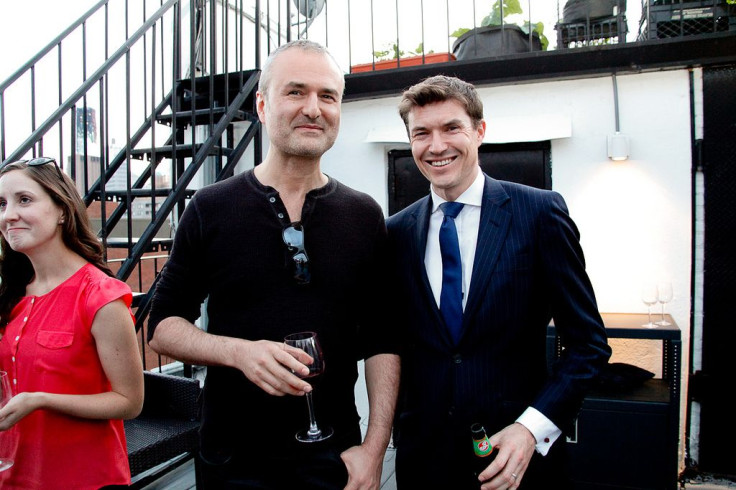Gawker Editor-in-Chief Alex Pareene: We Won't Be 'Garbage' BuzzFeed Or 'Humorless' Vox

The Gawker Media that the Internet has known for over a decade is dead. The company announced on Tuesday that it had laid off seven employees and its flagship Gawker.com would be shedding its identity as a gossip rag to become an offbeat politics site. “We can’t reshape the site’s focus without shifting personnel,” read one of several leaked memos from executive editor John Cook and Gawker Media CEO Nick Denton to the staff.
What followed was a typical media cycle of Gawker-talking-about-Gawker: Fellow journalists and Gawker alumni shook their heads at the unsentimental way the company laid off its employees and tried to process the idea of a Gawker that didn’t deal in dirt, gossip and the incestuous chronicling of New York City’s literati.
There are two clear reasons for the metamorphosis: A scandalizing but typically Gawker-esque post this summer outed a Condé Nast executive and kicked off a series of resignations, buyouts and bad press (recent revelations about its flatlining traffic, diversity numbers and treatment of female staffers haven’t helped). Since then, Gawker has been struggling to reboot itself as a place that’s “20 percent nicer” but still punchy, juicy and readable.
The other salient fact is that former Salon columnist and Gawker mainstay Alex Pareene took over the flagship site as editor-in-chief in October. Whip-smart, irreverent and combative, Pareene is viewed by many as the Gawker ethos personified. Now he’s tasked with remaking the whole site in his image.
Pareene told International Business Times on Wednesday that he wasn’t worried about losing Gawker’s audience by ditching what he called, in one memo, “pointless chuff.”
Vox Is Humorless, BuzzFeed Is Garbage
“For the most part, people who specifically come to Gawker to read Gawker will still enjoy what they see,” he said. “The random Facebook audience clicking on grabby headlines about small-town weird crime won't have as much reason to visit, but we'll make up for it with grabby headlines about Ben Carson attacking relatives.”
He isn’t worried about changing direction amid bumpy traffic: “Traffic is anemic everywhere, and whatever Facebook did [to its algorithm] didn't even hit us as hard as it hit, say, HuffPo,” Pareene said.
But conversational, bloggy politics sites aren’t exactly in short supply in the digital media market. With competitors like Salon, Vice and Vox already on the beat, why should Gawker jump on that bandwagon and scrap what makes it a unique, if risky, venture?
“I'm confident we'll be able to differentiate ourselves,” Pareene said. “There definitely are a lot of political blogs out there, but not many of them are actually fun to read or entertaining to normal humans. We will be!”
A memo he sent to staff elaborated on that point, needling the rivals mentioned above: “There is an untapped market for clever but informed commentary and reporting. I firmly believe this. The problem with Vox is that it's utterly humorless and the problem with BuzzFeed is that so much of it is utterly stupid. And so we mock BuzzFeed for their viral garbage and Vox for their artless style, but if we're going to do that, we have to make sure that we're smarter, better, funnier and sharper than the competition.
“I promise you, I don't want to be the editor of Talking Points Memo,” he added.
But what happens after the election season, when readers’ interest in politics subsides, as outlets from cable news to Capitol Hill bloggers know all too well?
“When 2016 ends, there will still be plenty of news for us. It's not something I'm actively thinking about right now, but we'll be adaptable,” he said.
The Union In The Background
In a twist of fate, Gawker -- touted as first digital media shop to unionize this year, kicking off a series of successful drives at Salon, Vice, Guardian US, Al Jazeera America, and ThinkProgress -- is now making news for a crop of messy layoffs. Where was the Writers Guild in the face of the cutbacks?
Gawker’s senior editor Hamilton Nolan, who started the union drive this year, told IBTimes that the nascent union simply can’t do much yet: “We are currently in contract negotiations, which will continue until we get a contract, and when we have a contract certain aspects of what happens here will be governed by the rules in the contract.”
“I do think that there is a potential for actions like this from the company to wear on the patience of the union in a way that could prove detrimental to good labor relations,” adding that the negotiations are focusing on issues that would come into play here, like severance pay.
In that aforementioned memo, Pareene lamented the lay-offs. “Unfortunately, as part of the transition, we've lost some very talented people.”
(Among those laid off was staffer Jason Parham, who spoke to IBTimes in August about Gawker's lack of racial and gender diversity. Gawker did not respond to IBT's multiple requests for its figures and eventually published them on its own this month.)
“It's painful, and I hope you all know that I wish this wasn't the case. But very soon we'll be casting a wide net to help build the diverse (in every sense of the word) collection of talents necessary to carry out this plan.”
Perhaps the biggest bombshell in the memo was an unambiguous commitment to retain, despite everything, possibly the most enigmatic and reviled series in Gawker’s entire history: the chronicling of TV personality Kristin Cavallari, “500 Days of Kristin.” (We’re only on day 297.)
“Finally, I have a message for those who would seek to do us harm, and who hate us for our freedom: We will not back down,” Pareene wrote at the end of the memo.
“The 500 Days of Kristin will be completed as scheduled.”
© Copyright IBTimes 2024. All rights reserved.






















